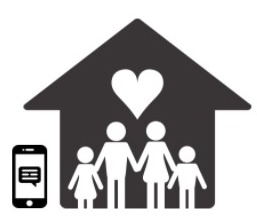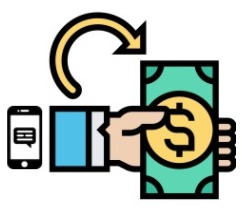Internet scams are nothing new; they've existed for decades. What's new, however, is text scams. In the past few years, text scams have been on the rise. One reason why these text scams are increasing is because of social media and online payment platforms.
With the number of text scams increasing, many are always on the lookout for ways to protect themselves so that they don’t fall victim to scammers who target them using text scams. Due to an increase in text scams, this article will help help you identify the 4 types.
Identifying text scams isn't easy for many people. The four types of potential text scams are family emergency texts, refund texts, prize text, and
If you want to know how to identify text scams, you will find this particular post very helpful as it gets to share with you different types of text scams that are very common with scammers. Chances are - if a scammer were to scam you, they’d use one of these text scams.
[lwptoc title="Types of Messages To Identify Text Scams"]
Family Emergency Texts

Based on information shared by the FCC, scams that emanate from family texts are quite common. Many people are gullible or not used to technology, so more reports of scammers are rising every year. These scammers have a scare tactic to use against innocent people. Simply put, scammers easily scam unsuspecting individuals using emergency texts.
With these emergency texts, you'll receive a text stating that one of your family members requires emergency help. It can be a sickness, being stuck in a foreign country or city, or needing money to clear a variety of bills.
These scams involve unsuspecting people being asked to send money to assist their family member(s) in need. The problem is that there are usually no family members in need but rather scammers trying to take your hard-earned money. They will pocket the money you send.
Refund Texts

Shared by the Federal Communications Commission(FCC), another common scam are refund texts. For the refund text scam, scammers text unsuspecting individuals telling them that they are eligible for a refund of a purchase they made recently. This scam works best with those that have made a purchase of something and didn’t like it at all.
To get a refund, you'll be required to share your banking details for the refund to be issued. By doing this, you'll be handing them very crucial details about your bank information, such as your account's routing number. They'll use this information to gain access to your bank account and ultimately steal from you.
Prizes Texts

Let's face it - we all want to win something, even if it's something small. Taking note of this, scammers send unsuspecting individuals texts telling them that they've won something. There's usually a catch, though. To receive your price, you are required to pay for shipment or something close to that.
Regardless, their intentions are usually to get your money either directly (when you send it to them as payment for shipment) or indirectly by using your details you share with them to gain access to your accounts, such as bank accounts, and then steal the money.
11-Digit Code Texts

Even though it is not another type of text scam, it is worth noting that scammers will text you using SMS codes that are more than 10 digits. If you happen to get a text from a digit code that's between 10 to 11 digits, then it's likely you're dealing with a scammer. By doing this, they're able to obtain personal information from you.
For more guides and information related to "4 Types of Messages: Identifying Text Scams," check out:
- Will Cash App Refund Money if Scammed Online?
- How To Prevent Cash App Message Scam
- Cash App Scams To Avoid
If you received a text from SMS codes and you're suspicious, check out the following numbers:









